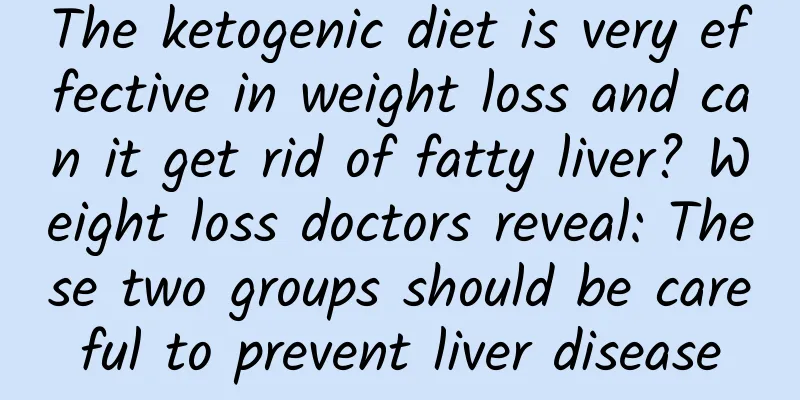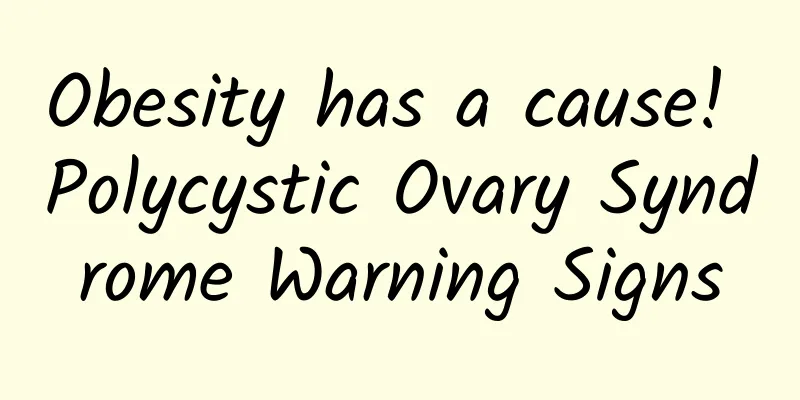The ketogenic diet is very effective in weight loss and can it get rid of fatty liver? Weight loss doctors reveal: These two groups should be careful to prevent liver disease

|
Many people have tried to use the ketogenic diet to lose weight, and it has been popular for quite some time. Recently, there have been reports online saying that "adopting a ketogenic diet can not only help you lose weight, but also reduce fatty liver disease," causing many people to try it. Is this true? Weight loss doctors say that short-term use of the ketogenic diet may seem to result in weight loss, but long-term use by people with the three highs or other chronic diseases may cause liver or kidney disease, so be careful! Ketogenic diet has a good effect on weight loss in a short time and can improve the value of glycosylated hemoglobin Liu Bowen, executive director of the Taiwan Obesity Education and Prevention Association and a weight loss specialist, said that the so-called "ketogenic diet weight loss method", also known as the "sugar-restricted diet weight loss method", is simply to eat very few carbohydrates (starches, sugars, etc.) and replace the energy usually obtained from carbohydrates with fats, and simulate the state of hunger to force the body to burn fat. Ketones are produced when fat is broken down in the body. Therefore, this diet that uses fat as the main energy source and continuously produces ketone bodies is called the ketogenic diet. Can long-term use of the ketogenic diet make people healthier? The characteristic of the ketogenic diet is to replace starchy foods with foods high in fat. Because the normal metabolic pathway of the human body is to break down starchy foods first to generate the calories needed for metabolism, once the starch reserves are insufficient, fats will be used instead for burning. And 1 gram of glucose (starch) can only produce 4 calories. But 1 gram of fat can produce 90% calories, and its burning rate is twice that of starch. Therefore, adopting a ketogenic diet to lose weight for a short period of time may have some effect and may even improve the glycated hemoglobin value. However, there is currently no professional medical research evidence to support whether long-term use of the ketogenic diet can make people healthier. Rumor has it that the ketogenic diet can help you lose weight and reduce fatty liver? Weight loss doctor's solution Let’s take a look at the rumor on the Internet: “Adopting a ketogenic diet can not only help you lose weight, but also reduce fatty liver.” What is the truth? "People often say, 'Fatty liver is caused by diet,'" said Dr. Liu Boen. There are many causes of fatty liver, the most important of which is obesity. The second most important mechanism is insulin resistance, three highs, alcoholism (causing alcoholic liver disease), viral hepatitis, as well as drugs and endocrine abnormalities. If factors such as viral hepatitis and alcohol addiction are excluded, fatty liver caused by other metabolic factors is generally called "non-alcoholic fatty liver disease" and has become the most common liver disease. Fatty liver can be roughly divided into the following categories: 1. Obesity-related fatty liver: The degree of fat accumulation in the liver is directly proportional to body weight, especially in severely obese people, the rate of fatty liver disease is as high as over 70%. 2. Alcoholic fatty liver: Clinically, more than 80% of some long-term alcoholics have been found to have fat infiltration. 3. Diabetic fatty liver: Generally, more than half of diabetic patients may develop fatty liver. 4. Malnutrition-induced fatty liver: Some people who lack protein may also develop fatty liver. 5. Fatty liver of pregnancy: It usually occurs between 34 and 40 weeks of pregnancy. 6. Drug-induced fatty liver: Certain drugs can inhibit protein synthesis and cause fatty liver. The formation of fatty liver is related to many chronic diseases, such as obesity, insulin resistance, type 2 diabetes, hyperlipidemia, and hypertension. The pathological process is that the disease causes insulin to be unable to quickly break down sugars, resulting in accumulation in the body via the Ketogenic cycle, forming fat accumulation in the liver. Improve non-alcoholic fatty liver disease through diet, weight control and proper exercise The so-called "non-alcoholic fatty liver disease" refers to a type of chronic hepatitis and chronic metabolic disease with pathological changes in liver tissue but no clear history of drinking. Due to the accumulation of excessive fat, it is easy to produce an inflammatory response, which will eventually lead to cirrhosis and even liver cancer. The treatment direction is also to achieve the therapeutic effect through diet, weight control and proper exercise. Even if you lose 5% to 10% of your body weight, you can significantly improve the pathology of fatty liver. Long-term use of the ketogenic diet without dietary adjustments may lead to abnormal blood fat Dr. Liu Bowen said that the basic principle of the ketogenic diet is to eat less carbohydrates and eat more meat and fatty foods to help metabolism, and to generate energy by metabolizing fat. Therefore, some people have shown a significant weight loss after strictly using the ketogenic diet. The main reason is that for the same number of grams, fat burning can produce twice as much calories as glucose, so it can quickly achieve the effect of burning fat, which will then show up as a change in weight. In the short term, it can quickly achieve the effect of weight loss. However, if the diet is not adjusted in the long term, the literature points out that it may increase the triglycerides in the blood, causing abnormal blood fats, which in turn may cause fatty liver. Dr. Liu Bowen finally reminded that according to clinical statistics, most people who use the ketogenic diet in the market do so for the purpose of losing weight. However, because obese people's metabolism is not very good, and most of them have problems with the three highs or other chronic diseases, it is easy to accelerate the deterioration of liver or kidney lesions. Therefore, it is not recommended for people with chronic kidney disease, pregnancy, cardiomyopathy, liver disease, kidney stones, or high blood lipids to use ketogenic diet to lose weight. Maintaining a balanced diet is the healthy and perfect way to lose weight. Losing just 5% of your body weight can help reverse fatty liver disease As for preventing fatty liver, many studies in the past 20 years have found that the most fundamental way to reverse fatty liver is still to control diet and increase exercise habits, which is far more effective than other drug treatments. Just by losing 5% of your body weight, not only liver inflammation, fatty liver disease, but other metabolic syndromes can be improved. |
>>: [Video version] This exercise is essential to increase immunity during the epidemic!
Recommend
How to cure chronic adnexitis
Chronic adnexitis is a common gynecological disea...
careful! "Zero-calorie" foods make you fatter and more depressed the more you eat
"Nutritionist, I always choose zero-calorie ...
Eat rice dumplings but don’t get fat! Beetroot + brown rice = 1 bowl of rice
The Dragon Boat Festival is approaching, and the ...
Why does pelvic inflammatory disease recur? There are many reasons
Many reasons can cause recurrence of pelvic infla...
When is the best time to have a painless abortion?
Painless abortion refers to an artificial abortio...
To prevent cervicitis, we should pay attention to four major health issues
Gynecological diseases are mostly caused by not p...
Will women get vaginitis if they wipe with paper after urinating?
When a woman goes to the toilet, she has a habit ...
Can Chinese medicine be used for treatment after painless abortion?
Unexpected pregnancy is something that every woma...
What causes severe pelvic inflammatory disease?
What causes severe pelvic inflammatory disease? 1...
Ariel Lin doesn’t eat cold foods to lose weight, and only eats the stems of vegetables? Nutritionist: The key to success is...
Lin Yichen, who has been in the industry for many...
Can you get pregnant with endometriosis?
Endometriosis is a common gynecological disease. ...
Eating sweet food will make you fat, while eating spicy food can help you lose weight? Is it right to eat a diet that includes sour, sweet, bitter, spicy and salty? 5 ways to lose weight easily
Food includes sour, sweet, bitter, spicy and salt...
What you need to know before taking on a marathon challenge! How professional runners fight fatigue
In recent years, many large-scale marathons and r...
How to treat cervical hypertrophy
Cervical hypertrophy is a pathological type of ch...
Do uterine fibroids affect fertility?
Uterine fibroids are the most common benign tumor...









